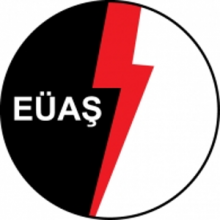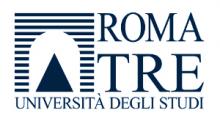Center for Energy Efficiency EnEffect – Bulgaria

The Center for Energy Efficiency EnEffect is a non-profit NGO working, founded in 1992 in Sofia, Bulgaria. Its establishment has been called forth by the acute need of energy conservation in households, industry, transport, construction, agriculture and in the energy sector. By its intensive involvement in activities to improve energy efficiency, EnEffect supports the efforts of the Bulgarian central and local authorities and the private sector actors for sustainable energy development.
The Centre for Energy Efficiency EnEffect has two specialized business subsidiaries, respectively specialized in energy audits of buildings and industrial systems and in integrated investment design of nearly zero-energy and passive buildings. Currently, EnEffect is acting as the Secretariat of the Bulgarian Energy Efficiency Network EcoEnergy, providing policy and technical support to the regional and local authorities to implement sustainable energy policies and practices. As part of an international consortium, EnEffect manages the Bulgarian Energy Efficiency and Renewable Sources Fund, supported by the Global Environment Facility, the World Bank and the Bulgarian Government.
EnEffect’s principal objectives are to:
- Contribute to the development of sustainable energy efficiency policies at all governance levels in Bulgaria to achieve economic and environmental benefits for the country.
- Contribute to the formation of energy efficiency market in Bulgaria and in other countries in transition as a prerequisite for the identification, development and implementation of economically viable energy efficiency projects.
- Contribute to the process of institutional and human capacity building through exchange of information and experience, targeted training and education.
Relevant fields of activity
Sustainable energy efficiency policy. EnEffect is author an internationally recognized methodology for municipal energy planning, accepted by the Joint Research Center (JRC) at the EC as the most suitable methodology for countries in transition. The publication “Municipal Energy Planning. Guide for municipal managers and specialists” (88 pages and 48 illustrations), which was issued first in English, was later translated in more than 10 European languages for use in about 15 countries in the region. Using the methodology, more than 60 energy programs for Bulgarian municipalities have been developed. A series of international projects for building local capacity on MEP have been and are being currently under implementation in many countries in transition in Eastern Europe and Central Asia. At the moment, 35 Ukrainian cities are developing their local energy programmes under EnEffect’s guidance and on the base of its MEP methodology in the framework of the USAID funded project “Municipal Heating Reform”. Similar projects have been developed in Armenia, Georgia, Moldova, and FYR of Macedonia (USAID and EU funded projects).
Additionally, a Roadmap for the development of the Bulgarian NZEB standard has been developed in cooperation with BPIE and EcoFys in 2012. In 2016, EnEffect completed an ambitious project in support of the further development of the Bulgarian National Programme for Energy Efficient Renovation of the Multifamily Residential Buildings, financed by the European Climate Foundation and conducted in cooperation with BPIE and Technical University – Vienna. Currently, EnEffect is consultant for the European Investment Bank on the potential financing of the Programme.
Institutional and professional capacity building. Capacity building activities are based on a wide scale networking on various management and territorial levels, where EnEffect plays critical roles. A series of training guides and programmes, as well as a Virtual Training and Information Center on sustainable building design have been developed and published by EnEffect. Tens of training courses have been carried out on municipal energy planning, energy efficiency project development, business planning and financing of projects and low energy building design and construction, where hundreds of specialists have been trained and certified in Bulgaria, in most of the new EU member states, as well as in Serbia, Macedonia, Bosnia and Herzegovina, Moldova, Kirgizstan, Kazakhstan, Ukraine, Georgia. At the moment, complementary to EnEffect’s continuing activities in this area, several specific projects related to expert and institutional capacity building are coordinated and run by EnEffect, including BUILD UP Skills EnerPro, co-financed by Intelligent Energy Europe, and Train-to-NZEB: The Building Knowledge Hubs, co-financed by Horizon 2020. Another project, coordinated by EnEffect and dedicated on nZEB retrofit, is expected to start in June 2017 under the name Fit-to-nZEB. Additionally, a number of other projects co-financed by Intelligent Energy Europe and Horizon 2020 have been successfully executed or are currently in action, as BUILD UP Skills Bulgaria (as coordinator), PERMANENT, PassREg, EuroPHit, EmBuild, ECHOES, iBROAD. Experts of EnEffect have also taken active part in the IEE-financed NET-COM and Covenant CapaCITY, as well as in the Horizon 2020 project “SPP Regions”.
Technical assistance and consultancy. Above 100 energy audits have been performed in Bulgaria with the use of specialized modeling software, developed with EnEffect’s direct impact. Technical assistance has been provided to Macedonian cities to audit a series of buildings, thus preparing their applications for financial support from the World Bank. High energy performance building design is being developed for various clients by a newly established design team, focused on low‐energy and passive building design standards. Currently, consultancy services are being provided to Ukrainian RTC and to local authorities for the development of their Municipal Energy Programmes.
Energy efficiency in buildings. Series of projects for energy efficiency in buildings have been implemented since the creation of the organization. Most of them are focused on building of local capacity of building specialists (designers, builders, managers, financiers, etc.) but also on increasing occupants’ awareness and influencing their behavior. A series of unique training materials on the integrated design and construction of low and nearly zero‐energy buildings have been developed, issued and disseminated. High level training of lead design practices in Bulgaria was performed in cooperation with the Passive House institute in Darmstadt (Germany) and the School of Architecture at the University College of Dublin (Ireland). Since the year 2011 an Internet portal “Build In Green” (www.buildingreen.net) and a series of printed editions were opened to public. The printed editions were issued under the auspices of GEF/UNDP and consist of the following issues:
- “Ten Books About Green Architecture” (4 volumes of 623 pages and 834 colour illustrations in total);
- “99 Successful Practices” (168 pages and 486 colour illustrations);
- “Green Vitrivius” (160 pages and 173 colour illustrations);
















